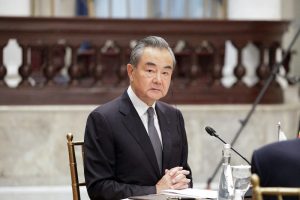A top Chinese policy think tank has called on the Xi Jinping government to set up a 2 trillion yuan ($280 billion) fund aimed at stabilising the country’s stumbling stock market, according to state media reports.
The Institute of Finance & Banking, affiliated to the Chinese Academy of Social Sciences (CASS), suggested Beijing set up the fund through special treasury bonds, such that it could be used to steady the market through buying and selling blue-chips and exchange-traded funds (ETFs).
The proposal, reported by the 21st Century Business Herald, is part of a quarterly report by the institute on China’s economy.
Also on AF: China’s Third Quarter Growth is Weakest Since Early 2023
CASS is China’s premier academic organisation, although it was unclear if or how the proposal would influence policy.
When asked about the potential setup of a stock market stabilisation fund last month, China’s central bank chief Pan Gongsheng told reporters a study of the proposal was under way.
China’s recent policy stimulus has triggered a furious rally in stocks, though that euphoria has turned into caution in past weeks. Blue-chip stocks have gained roughly 24% over the past month.
The Institute of Finance & Banking also proposed more investment by long-term capital to steady the market, according to the newspaper. For example, China could raise the ceiling of stock investment by insurance companies and the national pension fund, the think tank proposed.
China has already introduced policies to encourage institutional stock investment.
Last Friday, China’s central bank kicked off two funding schemes that will initially pump as much as 800 billion yuan into the stock market.
Under the facilities, brokerages, insurers and asset managers can have easier access to liquidity for share purchases, while listed companies and their major shareholders can tap cheap PBOC lending for share buybacks and holding increases.
- Reuters, with additional editing by Vishakha Saxena
Also read:
China Reduces Key Lending Rates in Bid to Rev up Economy
China Ramps up Spending on Housing Projects to $562bn
China’s Top Cities Set to Lift All Curbs on Homebuyers
China Set to Issue $284bn in Special Bonds to Lift Economy
China’s Property Debts Seen Weighing Down Economy for Years
Chinese Banks Will be Told to Cut Mortgages by End-Oct: PBOC
China’s Bankers, Fund Managers Ditch Careers Amid Crackdown
























